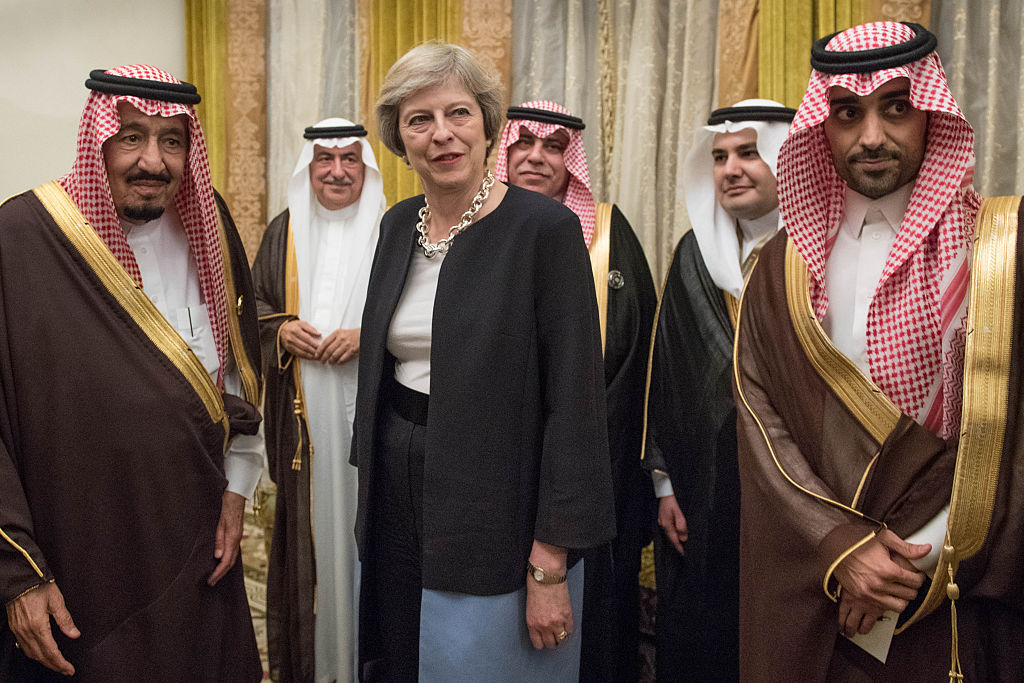British think tank fingers Saudi Arabia as the chief exporter of Islamist extremism


A free daily email with the biggest news stories of the day – and the best features from TheWeek.com
You are now subscribed
Your newsletter sign-up was successful
On Wednesday, the foreign ministers of Saudi Arabia and other Arab nations are meeting in Cairo to discuss possible further sanctions against Qatar for allegedly supporting Islamist terrorism, as a deadline expires on a list of demands from the Saudis, Egypt, Bahrain, and the United Arab Emirates. Qatar denies the charges. Also on Wednesday, British foreign policy think tank the Henry Jackson Society released a report on foreign-funded Islamist extremism in the United Kingdom, and topping the list of offending countries is Saudi Arabia, which exports "an illiberal, bigoted Wahhabi ideology," the report says.
"Since the 1960s, Saudi Arabia has been committed to a policy of promoting the kingdom's hardline interpretation of Wahhabi Islam globally," the authors write. "Over the past 30 years, Saudi Arabia has spent at least £67 billion [$86 billion] on this endeavor. The most profound impact has been in other parts of the Islamic world, where funding from Gulf States has been used to promote a more extreme interpretation of Islam, often overriding local practices and traditions that are more moderate. ... Nevertheless, the money has also been used to export Wahhabism to the West."
The Saudi Embassy in London rejected the report's findings, saying the assertion that Saudi Arabia has radicalized "a small number of individuals" is "baseless and lack credible evidence," and the Saudi government does not "and will not condone the actions or ideology of violent extremism and we will not rest until these deviants and their organizations are destroyed." The Henry Jackson Society report does mention Saudi Arabia's new center for countering Islamic extremism, inaugurated amid great fanfare with assistance from President Trump, but adds that "it has also been alleged that the amount of funding for religious extremism coming out of countries such as Saudi Arabia has actually increased in recent years."
The Week
Escape your echo chamber. Get the facts behind the news, plus analysis from multiple perspectives.

Sign up for The Week's Free Newsletters
From our morning news briefing to a weekly Good News Newsletter, get the best of The Week delivered directly to your inbox.
From our morning news briefing to a weekly Good News Newsletter, get the best of The Week delivered directly to your inbox.
The British government is "under pressure to publish a report on U.K.-based Islamic groups" that was "commissioned by former Prime Minister David Cameron in 2015," BBC News reports, but if it ever gets published — an open question — "critics have suggested it could make uncomfortable reading for the government, which has close and longstanding diplomatic, security, and economic links with the Gulf, particularly Saudi Arabia." You can read the report at the Henry Jackson Society.
A free daily email with the biggest news stories of the day – and the best features from TheWeek.com
Peter has worked as a news and culture writer and editor at The Week since the site's launch in 2008. He covers politics, world affairs, religion and cultural currents. His journalism career began as a copy editor at a financial newswire and has included editorial positions at The New York Times Magazine, Facts on File, and Oregon State University.
